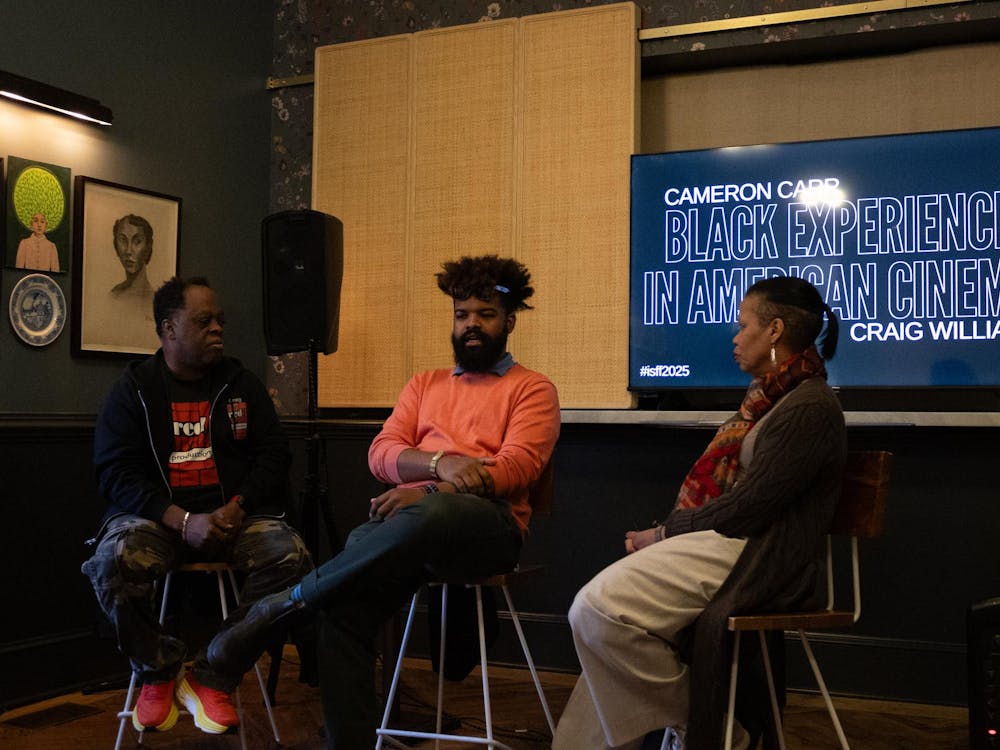In the past decade, lesbian, gay, bisexual and transgender groups have made massive strides with regard to the portrayal of so-called “queer” characters on television. Whereas the sitcoms and courtroom dramas of the ‘80s and ‘90s tended to feature gays and lesbians in small subplots and brief stints, if at all, virtually every program on TV today seems to include recurring LGBTQ characters. That said, notably absent from the scores of LGBTQ roles currently offered are politically conservative characters, despite the fact that these sorts of figures could stand to advance current political discourse and ease the coming out process for viewers with much more resonance than the motley crew now on display.
For the most part, today’s television programs portray political conservatism as an antagonistic and oppressive force for LGBTQ characters, or else as fodder for comic punchlines. In Showtime’s The United States of Tara, for instance, we’re meant to applaud Brie Larson’s Kate when she dumps her Republican boyfriend out of respect for her gay younger brother, and in HBO’s True Blood, Christian preachers and conservative politicians are presented as caricature-like villains who foster ignorance and sexual repression. Though some shows, like Fox’s Glee, attempt to stage reconciliations between LGBTQ individuals and right-leaning religious groups, few programs, if any, dare to imagine an end to the allegedly absolute conflict between conservatism and open homosexuality.
When shows do decide to include gay conservatives in their casts of characters, the results are consistently messy. The poorly received Smash, for instance, pairs its leading male player, Tom, with a predictably dull and stodgy Republican named John for a brief affair that serves more as an opportunity for Tom to unleash a steady flow of liberal rhetoric than as a believable or nuanced relationship. Similarly, Glee draws on a slew of negative stereotypes when it portrays Sebastian Smythe, an implied conservative, as a villainous preppy character with a knack for exploiting others and flaunting his massive bank account. Aaron Sorkin offers a slightly subtler take in The West Wing and The Newsroom by casting gay Republicans as fairly rational and relatable human beings, but in both cases, he allows his snarky protagonists to have the last word in their dealings with the conservative politicians in question.
Because of the admittedly liberal bias of the TV world and the seemingly small population of openly gay Republicans in the American public, the relative lack of right-wing LGBTQ representation on the small screen is neither surprising nor unrealistic. Nevertheless, upping the number of conservative gay characters on television could lead to massive progress for LGBTQ rights groups, as well as for the gay community in general.
For individuals from a conservative background, the coming out process often poses a great deal of difficulty, in part because, as it stands, gay Republican role models are few and far between in the pop cultural world, and the LGBTQ community makes little or no public effort to make its conservative members feel welcome. Whereas many young liberals see themselves in characters like _Girls_’ Elijah and _Political Animals_’ T.J., folks on the other side of the aisle often find it difficult or impossible to relate to the artsy styles and left-wing attitudes of these figures, who see gay conservatives as either self-loathing hypocrites or traitors.
If gay rights leaders want, as Harvey Milk did, to see all LGBTQ men and women come out of the closet and embrace their sexual identity, then they should acknowledge the political diversity of the community they claim to represent. Creating role models for young Republicans would ease the coming-out process for scores of individuals who currently feel unwelcome in both the straight and LGBTQ communities. Moreover, this shift in television representations would make it increasingly difficult for conservatives to cast off the LGBT population; a professedly anti-gay Republican politician would be much more inclined to sit down with and befriend a gay individual if said individual shares some of his or her beliefs and principles.
When we discriminate against others, we tend to do so on the basis of discomfort. We fear the unfamiliar and the different, in part because we’re not sure how to respond to it. In the case of homosexuality, many conservatives feel alienated from the LGBTQ community not only because of a difference in sexual preference, but also on account of a perceived difference in core principles, political views, religious faith, lifestyle and appearance.
Gay Republicans, then, stand to serve as a bridge of sorts between two seemingly irreconcilable groups. And although portraying nuanced LGBTQ conservative characters on TV would not propel massive political change overnight, it would at least be a step in the right direction.






